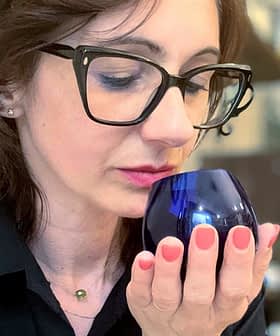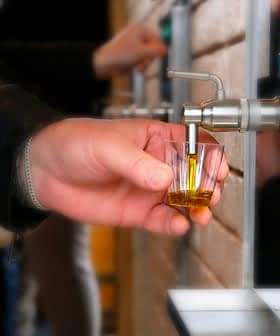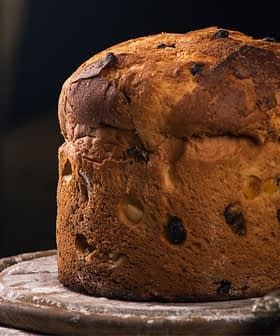Greeks Celebrate Christmas with Traditional Olive Oil-Based Cookies
Christmas in Greece is centered around religion and food, with melomakarona and kourabiedes being the most popular Christmas sweets made with simple ingredients and different flavor profiles. Melomakarona are made with olive oil, sugar, and orange juice, while kourabiedes are covered in powdered sugar and made with butter or olive oil, making them suitable for all year round consumption.
Like most holidays in Greece, Christmas revolves around religion and food.
Melomakarona and kourabiedes are Greece’s most beloved Christmas sweets, found in every home, bakery and pastry shop across the country during the festive season.
Made with simple ingredients, these decadent little cookies boast different but festive flavor profiles. Kourabiedes are also more crunchy, while melomakarona feel softer to the mouth.
I actually feel good about (eating melomakarona) because they really represent what the Greek Mediterranean diet is all about: delicious food made with good-for-you ingredients.
Both melomakarona and kourabiedes classify as gateaux de voyage or travel cakes, meaning they are not refrigerated and can also withstand the jolts of traveling.
Melomakarona (pronounced meh-loh-mah-KAH-roh-nah, singular melomakarono) is probably the most classic Greek Christmas delicacy and a popular treat in the country during the holiday season.
Melomakarona are cookies made from flour, olive oil, sugar and orange juice, drenched in honey syrup with crushed walnuts for the topping. Cinnamon and orange zest can also add extra flavor to the mixture.
See Also:Panettone Gets a Healthy UpgradeVariations, such as melomakarona covered in chocolate or stuffed with walnuts and even plums, also exist.
Some recipes also suggest replacing about a third of the flour with semolina, which helps to soak up the syrup and makes the melomakarona succulent on the inside.
When making melomakarona, high-quality olive oil is an indispensable ingredient.
“Only the season’s fresh extra virgin olive oil goes into our melomakarona,” Konstantinos Daremas, a fourth-generation baker and the owner of a pastry shop in Markopoulo near Athens, told Olive Oil Times. “This way, we get great flavor accompanied by the countless healthy attributes of the olive oil.”
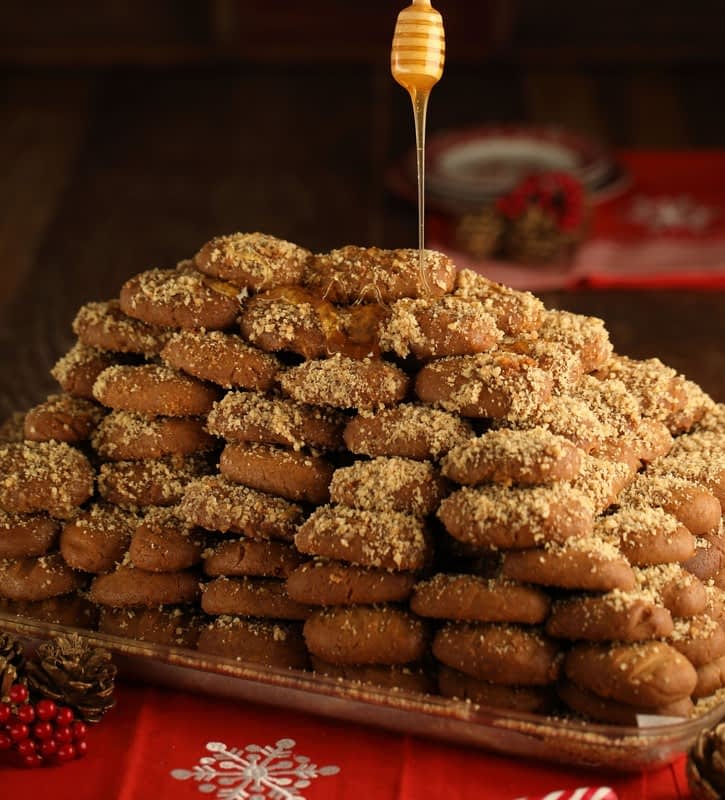
A pile of melomakarona (Photo: Konstantinos Daremas)
“The olive oil comes from our privately owned, organic groves,” he said. “And if needed, we buy more extra virgin olive oil from certified organic producers. The price of extra virgin olive oil has skyrocketed in the last couple of years, but we make no compromises.”
Daremas also disapproved of substituting a small amount of vegetable oil for olive oil in the preparation of melomakarona.
“Some cooks and bakers supposedly use vegetable oil to make the melomakarona lighter, but they just use it to cut costs,” he said. “The vegetable oil adds nothing to the melomakarona in terms of flavor or consistency.”
Food blogger Eva Monochari advises exclusively using extra virgin olive oil to make melomakarona, especially from the Manaki or the Koutsourelia olive varieties that give mild, fruity oils perfect for making cakes and sweets.
Another secret to making delicious melomakarona is not to overwork the dough but to knead it until all the ingredients are mixed.
In their basic recipe, melomakarona are vegan and suitable for those who fast since they contain no egg or butter, especially if the honey used to prepare the syrup is replaced with maple or agave syrup.
Made with everyday ingredients, melomakarona are also healthier than most Christmas sweets and desserts.
“I love eating melomakarona,” nutritionist and registered dietician Elena Paravantes said. “I actually feel good about it because they really represent what the Greek Mediterranean diet is all about: delicious food made with good-for-you ingredients.”
“On the one hand, yes, these sweets have plenty of sugar, but on the other hand the olive oil, the honey, the orange zest and the walnuts are all sources of antioxidants,” she added. “Most importantly, the fat from the melomakarona comes exclusively from olive oil.”
Chef Petros Syrigos suggests using the melomakarona all year round as regular cookies without the honey syrup, as they can perfectly complement a cup of coffee.
Kourabiedes (pronounced koo-rah-BYED-es, singular kourabie) is another Greek Christmas delicacy, competing with melomakarona for the title of the country’s most popular Christmas sweet.
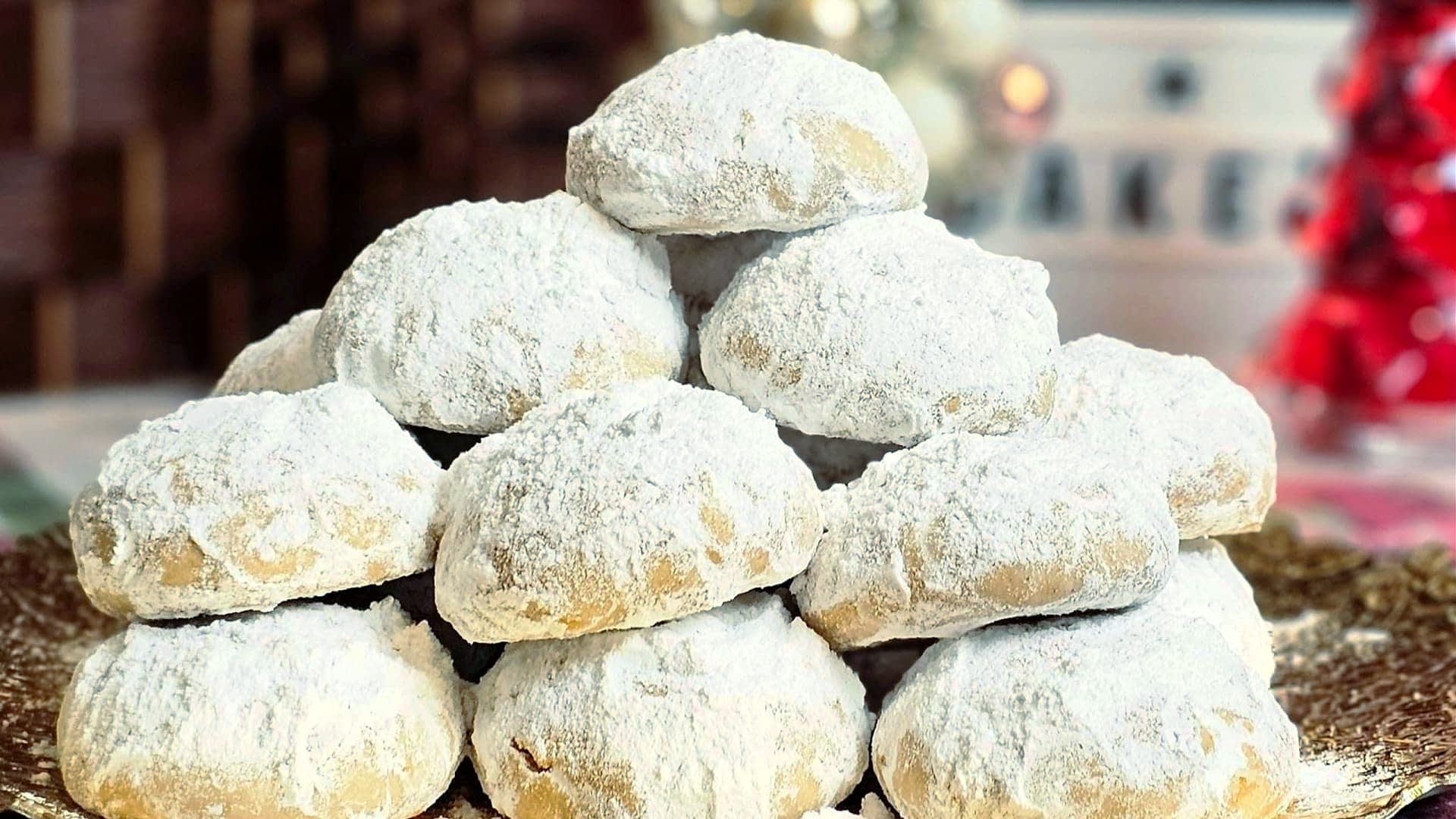
Kourabiedes covered in powdered sugar (Photo: Stratos Petrou via Facebook)
Covered in a veil of powdered sugar, these snowy round or crescent-shaped cookies are the perfect delight for the holiday season.
Unlike melomakarona, which are exclusively associated with the holiday season, kourabiedes are made in Greek homes and pastry shops all year round. They are also a popular treat at weddings and other celebrations.
The most common recipes for kourabiedes include butter as the primary fatty ingredient. In some regions of Greece, however, such as the Peloponnese and Crete where olive oil is abundant, traditional kourabiedes recipes favor extra virgin olive oil for making the decadent sweets.
Food blogger Maria Patsia was a fan of kourabiedes made with butter. However, she was thrilled when she came across a recipe for kourabiedes with extra virgin olive oil, ouzo and walnuts.
“[The recipe] challenged me as it said it would convince even the most fanatic of butter kourabiedes… curiosity made me try it,” she said. “And I am certain that you have never eaten anything like that before.”
When making olive oil kourabiedes, no conversion of quantities is needed to replace butter with olive oil since the kourabiedes recipes with olive oil are self-sustaining.
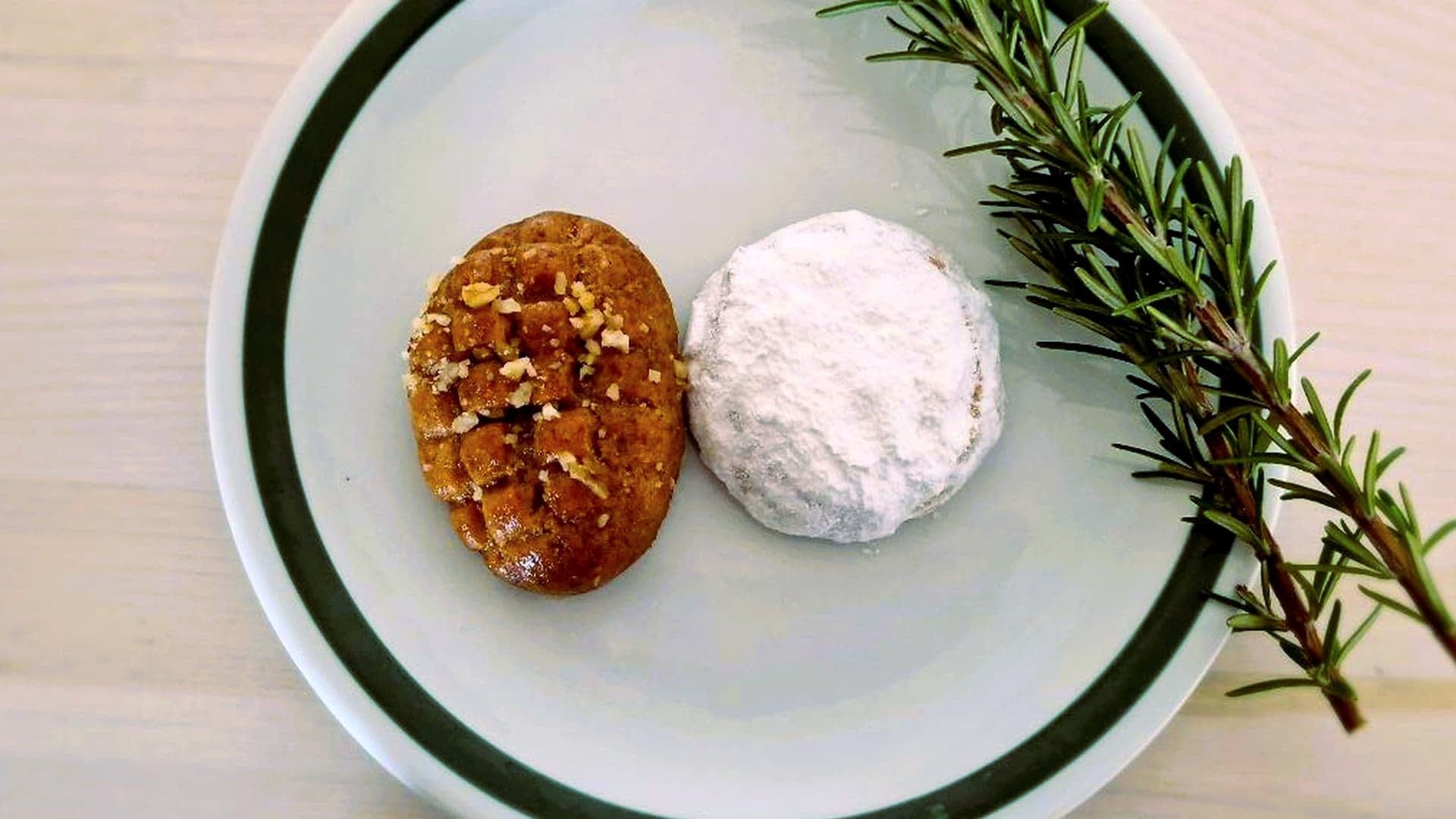
A melomakarono and a kourabie served together is a common Christmas treat in Greek homes. (Photo: OOT Archive)
Apart from the olive oil, flour, sugar, egg yolks, almonds, and icing sugar used for sprinkling after baking are used to make the kourabiedes.
Some recipes leave out the egg yolks, making olive oil kourabiedes a tasty vegan option.
The almonds are roughly chopped and added to the mixture. Alternatively, a whole almond is added to the center of each kourabie before baking.
See Also:Use Extra Virgin Olive Oil for Healthy and Delicious BakingA crucial step when making kourabiedes is to whisk the olive oil and sugar well until the mixture becomes pale and fluffy. The rest of the ingredients are then gradually added to the mixture. A slight hint of ouzo in the dough adds a spicy twist to the scrumptious cookies.
Some also suggest freezing the olive oil before using it so that the dough for the kourabiedes becomes fluffier.
“Back in the day, people used to sink a bottle of olive oil into a well until it was ice cold, and then they would use it as the base for fragrant, fluffy and gritty fasting kourabiedes,” home cook Roula Voulga said.
As part of the festive spirit that takes over everyone during Christmas, a hot topic of discussion in Greece is whether to opt for melomakarona or kourabiedes.
However, when in a Greek home during the festive season, visitors will likely be treated with a pair of a melomakarono and a kourabie nested together on a plate.
And so, the eternal ‘melomakarona or kourabiedes’ dilemma has been answered.



